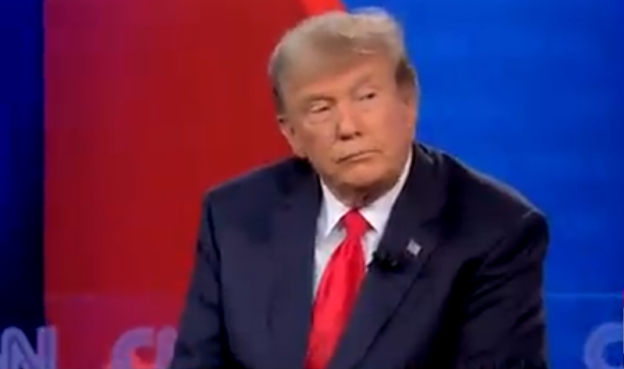The US Supreme Court has been asked to weigh in on a Colorado State Supreme Court ruling. The Colorado Court’s 4-3 decision prevents Donald Trump from appearing on the state’s upcoming primary ballot based on a very unjudicial assumption.
Despite having never been convicted in any court in any state across the increasingly fruitless Plain, Colorado’s highest court finds him guilty of insurrection. At least, it seems like they must have without there ever having been a trial verdict. How else do you punish him on these grounds unless he has been found guilty? That suggests to me that someone must impeach or otherwise remove the four state supreme court judges who ruled based on the absence of crime or conviction.
You can hate Donald Trump and still agree with me.
There’s just no room for that thinking in any court, let alone a State Supreme one, to which we add, as Hans von Spakofky notes at The Daily Signal, election interference. It’s another unforgivable crime (unless it’s done to Republicans). He also reminds us that no other court confronted with ideological lawsuits to stop Trump, citing Section 3 of the 14th Amendment, has passed judicial muster, nor should it.
First, Section 3 of the 14 Amendment applies only to individuals who were previously a ‘member of Congress,’ an ‘officer of the United States,’ or a state official. Individuals who are elected—such as the president and vice president—are not officers within the meaning of Section 3.
Second, no federal court has convicted Trump of engaging in ‘insurrection or rebellion.’ In fact, the Senate acquitted Trump of that charge in his second impeachment.
Third, some scholars assert Section 3 doesn’t even exist anymore as a constitutional matter after the Amnesty Acts of 1872 and 1898—a matter completely ignored by the court today.
Fourth, prior court rulings have held that Section 3 is not self-executing and Congress has never passed any federal law providing for enforcement, meaning that courts such as the Colorado Supreme Court have no legal authority to enforce Section 3.
That’s all well and good and fine and dandy, but the second point is the only one that matters. Whether it is actionable or not, relevant or not, the defendant has not been convicted. The Colorado State Supreme Court – all Democrat appointees, as if that should matter – has overstepped and may have derailed every other effort to keep the Trump Train from steamrolling itself into a Republican nomination.
“We conclude that because President Trump is disqualified from holding the office of President under Section Three, it would be a wrongful act under the Election Code for the Secretary to list President Trump as a candidate on the presidential primary ballot,” reads the majority opinion.
“Therefore, the Secretary may not list President Trump’s name on the 2024 presidential primary ballot, nor may she count any write-in votes cast for him,” the order added, as Colorado state law does not permit write-in votes to be counted for ineligible candidates.
The ruling reverses a lower court ruling that President Trump was eligible to appear on the ballot because while he did “engage” in an “insurrection” on Jan. 6, 2021, Section 3 of the 14th Amendment does not apply to presidents. The Colorado Supreme Court was unpersuaded by both the lower court and President Trump’s arguments that Section 3 did not apply to presidents.
“Section Three encompasses the office of the Presidency and someone who has taken an oath as President. On this point, the district court committed reversible error,” the order reads.
Hans von Spakovsky insists Sec. 3 doesn’t apply to presidents. The Lower Colorado court agreed. The Colorado Supremes barely disagreed but put it in writing, so now the US Supreme Court may need to answer the question. I don’t see how it wouldn’t apply, and they may decide that it does, but it hardly matters. The Colorado State Supreme Court has denied Mr. Trump ballot access to which he qualifies under state law (this is election interference) absent his Fith Amendment right to due process and Seventh Amendment right to trial by jury (at least I think that may apply), acting with conviction in the absence of a conviction.
They have assigned guilt to justify a decision where none yet exists. This means that plaintiffs have no standing. There is no crime to measure against A14-3; the state, therefore, cannot disqualify the candidate. And these four judges who voted to punish him for that should be removed from office.
